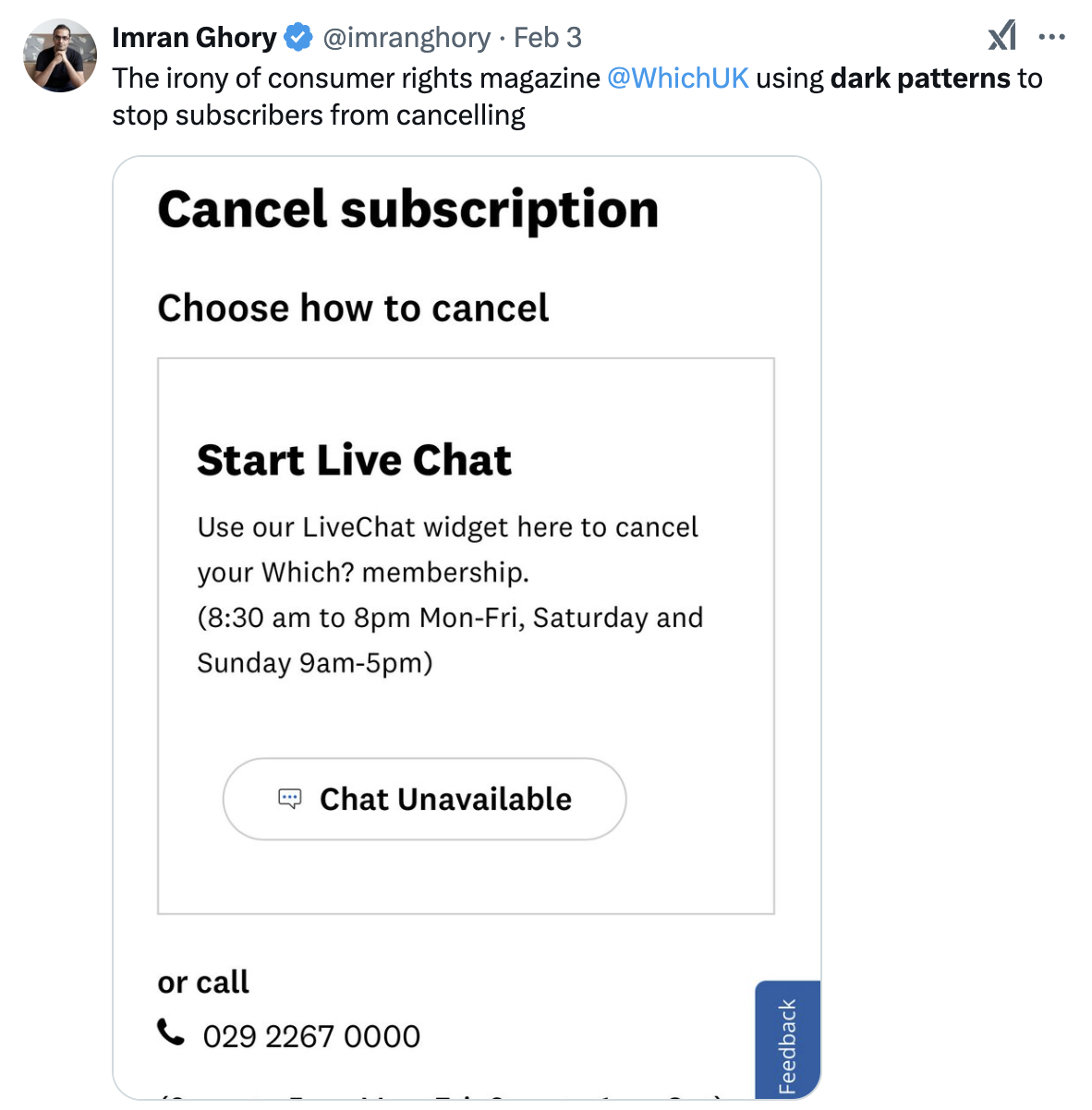What the hell does "because it works" even mean?
It's Wednesday, February 5th, and today we're talking about why "because it works" is the battle cry of bad business.
Forward this to a smart friend so they can sign up here.
A few months ago, I tried to cancel my online gym membership. After clicking through seventeen billion screens, declining four "special offers," and being forced to provide a blood sample and my grandmother's meatball recipe, I finally reached the cancellation button.
This kind of digital obstacle course is everywhere, and we justify it with three magic words: "because it works."
It's become the ultimate business get-out-of-jail-free card, absolving us of any responsibility to be better.
Let's look at the "It Works" Hall of Shame:
- That unsubscribe process that makes you click through six screens? Works. People give up and stay subscribed.
- The checkout process bloated with upsells? Works. Some people add items.
- Adding random emails to your marketing list without permission? Works. Until it doesn't, and you're marked as spam. Also, no one likes you.
- Those "comment 'newsletter' below!" posts? Works. If you consider manufactured engagement valuable.
- Forced app downloads for basic services? Works. But customers don't feel good about you.
- LinkedIn, who leads you into an absolute asylum of choices just to turn off one notification type? Works. But also, no one likes you.

Lots of folks refer to these practices as Dark Patterns.

But there is something about the catgorizing and labeling of these tactics that doesn't sit well with me. It fails to capture the infuriating, obtuse lack of consideration folks will deploy just to make a few more bucks.
(Sidenote, there's a subreddit dedicated to putting Dark Pattern creators on blast. Viva la revolución).
We're measuring success like toddlers counting cookies.

But your customers feel like:

Disclaimer: I do not support the throwing of babies
The Math Doesn't Math
When companies say something "works," they're usually looking at isolated metrics:
- Unsubscribe rates dropped 20%! (Because people gave up trying)
- Email list grew by 5000! (Who all mark you as spam)
- Engagement up 40%! (With comments that add zero value)
But they're not measuring:
- The customers who'll never do business with you again
- The screenshots of your sketchy tactics being shared (I have a vault of this stuff)
- The trust you're burning through like a kid with their first credit card
- The support tickets from irritated customers
- The constant churn because you've trained people to distrust you
I recently watched a "growth expert" on Tik Tok brag about how their aggressive email capture popup converted at 15%. He actually used the words "people may say it's annoying, but it works".
This man is actually saying "yes, I annoy people, but I get their money".

Redefining what "works" actually means.
Real success isn't just about immediate conversion rates or short-term metrics. It's about building something sustainable; the type of brand people look forward to interact with.
Some companies get this:
- Patagonia's "Don't buy this jacket" campaign
- Candor's single, simple pricing tier and one click cancellation
- Wondry's "no contract length" policy. (😏)
They're playing the long game, understanding that respect for customers is actually a long-term competitive advantage.
And you?
Want to audit your own "because it works" practices? Ask yourself:
- Would I be proud to explain this practice to customers?
- Am I measuring success in a way that matters?
- What's the human cost of this "working" tactic?
- Am I building trust or just temporary compliance?
If we spent less time designing dark patterns and more time creating genuine value, we wouldn't need all these tricks in the first place.
Onward,
April





